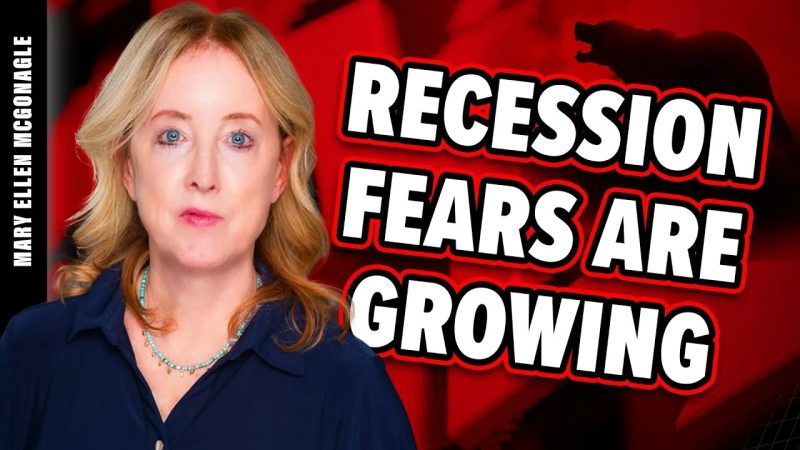The recent turmoil in the financial markets has left many investors on edge as recession fears intensify. With major indexes plummeting and uncertainty looming, market participants are reevaluating their strategies and bracing for potential adverse impacts on their portfolios. The global economic landscape is facing significant challenges, ranging from trade tensions to geopolitical uncertainties, exacerbating concerns about an imminent economic downturn. As investors navigate through this period of volatility, it becomes crucial to adopt a cautious and proactive approach.
One of the key indicators of an impending recession is the inverted yield curve, which has historically preceded economic downturns. The recent inversion of the yield curve has sparked concerns among investors and economists alike, signaling a potential economic slowdown in the near future. This development has led to a flight to safety, with investors flocking to traditional safe-haven assets such as gold and government bonds.
Moreover, the ongoing trade disputes between the United States and China have further added to the uncertainty in the markets. The tit-for-tat tariffs imposed by both countries have created a ripple effect across global supply chains, causing disruptions and increasing costs for businesses. The trade tensions have not only weighed on investor sentiment but also raised fears of a prolonged economic standoff with far-reaching implications.
Geopolitical tensions have also contributed to the market turbulence, with events such as Brexit and the civil unrest in Hong Kong further clouding the global economic outlook. The uncertainty surrounding these events has led investors to adopt a more cautious approach, with a focus on risk management and diversification.
In the midst of these challenges, investors are advised to stay informed and vigilant, closely monitoring market developments and adjusting their portfolios accordingly. Diversification remains a key strategy for weathering market volatility, spreading risk across different asset classes and geographies. Additionally, seeking guidance from financial advisors and experts can provide valuable insights and help investors navigate through uncertain times.
Despite the prevailing uncertainties and fears of a recession, it is important for investors to keep a long-term perspective and avoid making knee-jerk reactions. History has shown that markets experience cycles of ups and downs, and staying disciplined during turbulent times can lead to better outcomes in the long run.
In conclusion, the recent market nosedive amid recession fears underscores the importance of prudent financial planning and risk management. By staying informed, diversifying portfolios, and seeking expert guidance, investors can mitigate risks and position themselves for long-term success in an increasingly volatile market environment.

